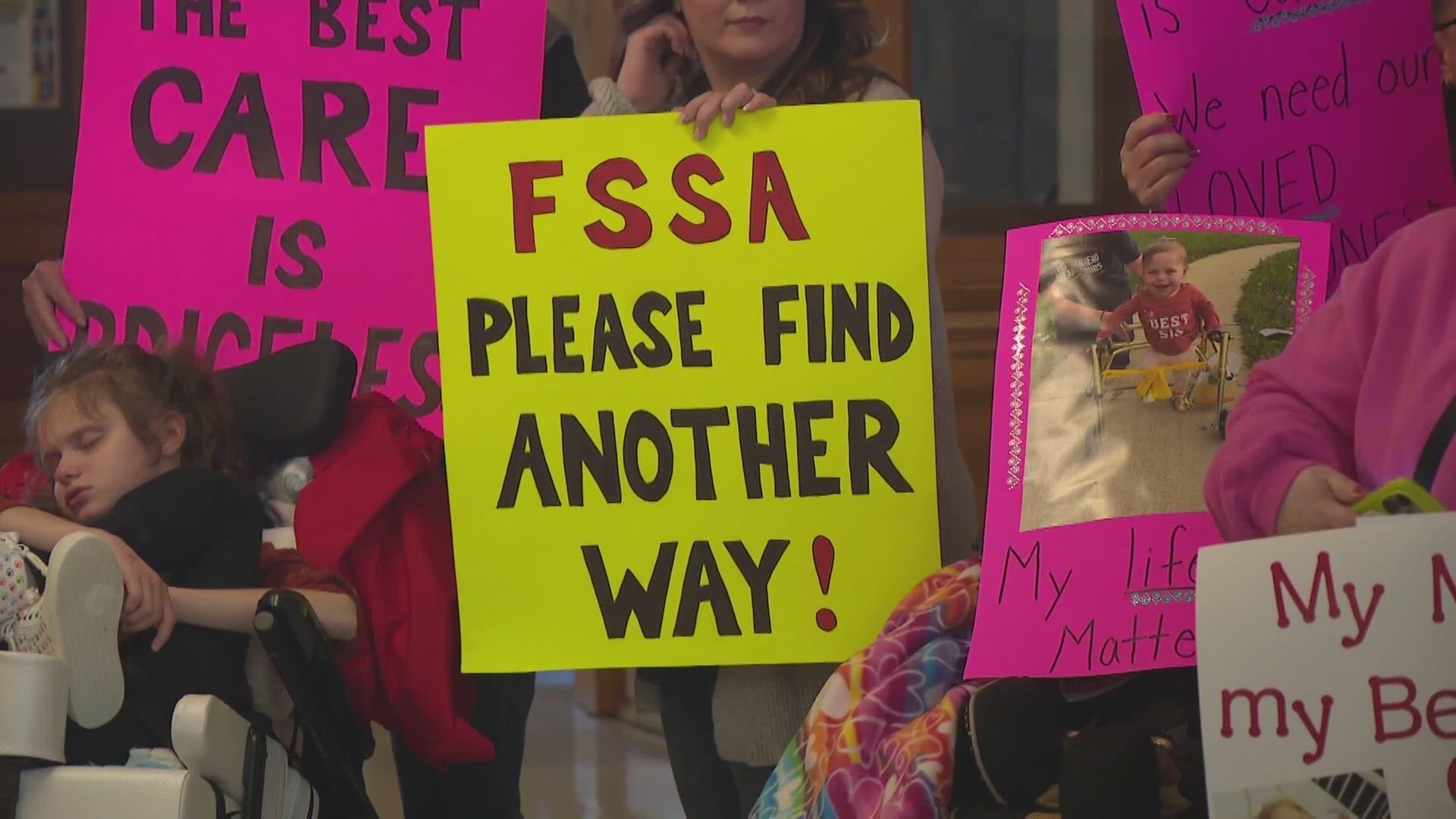INDIANAPOLIS — Indiana lawmakers are in the homestretch of this year’s legislative session. This is likely the final week for both the Senate and House to pass bills. One bill is being watched very closely by parents of kids with special needs.
Senate Bill 256 already passed out of the Senate. Last week, lawmakers in the House made changes to it, offering amendments.
Parents who came to the Statehouse Monday said these changes could help their medically-complex children get the care they need. For those parents, it was their last chance to have their stories heard before the House voted on the bill.
Renee Case spoke about her 6-year-old daughter, Ivy, who needs 24-hour care because of a rare genetic disorder.
“I can’t work full-time,” Case explained.
Since January, Case has brought Ivy to the hallowed halls of the Indiana Statehouse – six times – standing with other families to protest changes to the state’s Attendant Care Program, which pays Case hourly to care for Ivy at home.
“It’s made life so much easier for us,” Case said.
That’s all changing though in July.
In January, the Family and Social Services Administration announced parents, like Renee, would need to switch to a different program that would pay them a daily rate instead of an hourly one to care for their kids.
The changes are part of FSSA’s plan to make up $300 million of an almost $1 billion shortfall to its Medicaid budget. They announced that shortfall in December. Last month, FSSA said more than 1,600 kids would be impacted by the changes.
“There are so many things not being clarified to us of how it’s all going to work, so those are the questions we’re trying to work out right now,” Case said.
“FSSA says it’s going forward, but we don’t see how it’s going forward,” said mom Tendra Duff, who also has a medically-complex child.
Parents like Duff and Case hope Senate Bill 256 will answer some of their concerns through amendments made to it last week in the House.
Among them, one amendment calls for more transparency from FSSA about how the budget shortfall happened and how to prevent it from happening again.
Another defines extraordinary care, allowing parents whose children require that kind of care to be reimbursed for it proportionately.
In a statement, Gov. Eric Holcomb said changes to the program were necessary so that FSSA could continue to provide service to more than 2 million Medicaid recipients.
“Between now and July 1, FSSA is working with provider agencies employing parents as caregivers to consider individual circumstances and help develop a transition plan to a program that will provide the necessary services these families depend on,” Holcomb’s statement read.
For parents like Case, no matter what happens at the Indiana Statehouse this week, what won’t change is the care Ivy and other medically-complex kids need for the rest of their lives.
That’s why she and other parents say their fight isn’t over.
“It isn’t done,” Case said.
Monday afternoon, the House passed Senate Bill 256 that included the amendments added to it last week. Now, parents like Case wait to see if the Senate agrees with those changes.
“We’re still fighting, even when this is all over this week,” Case said.

